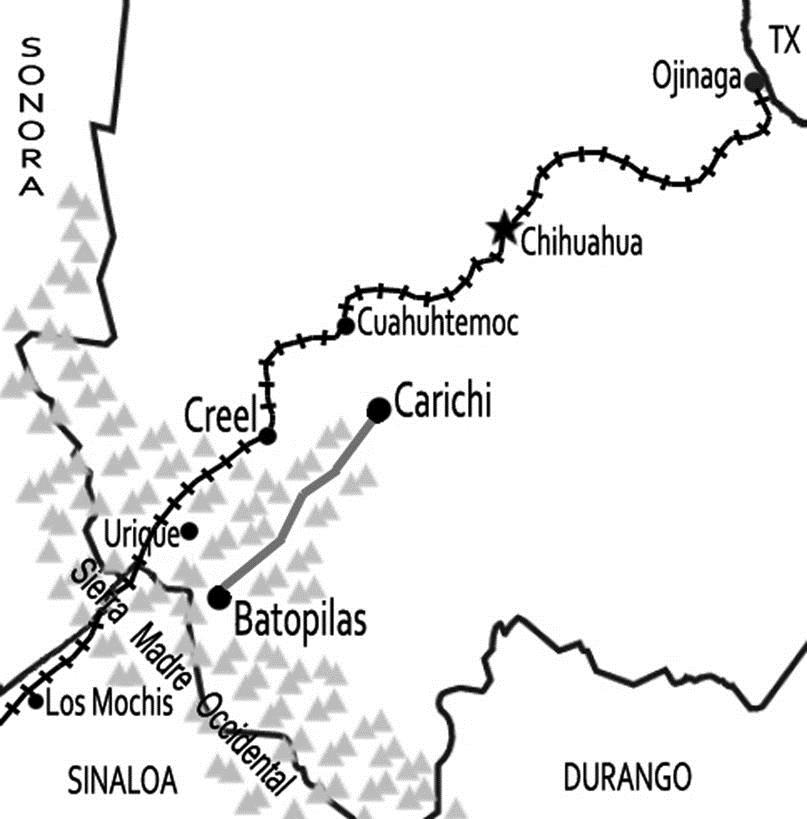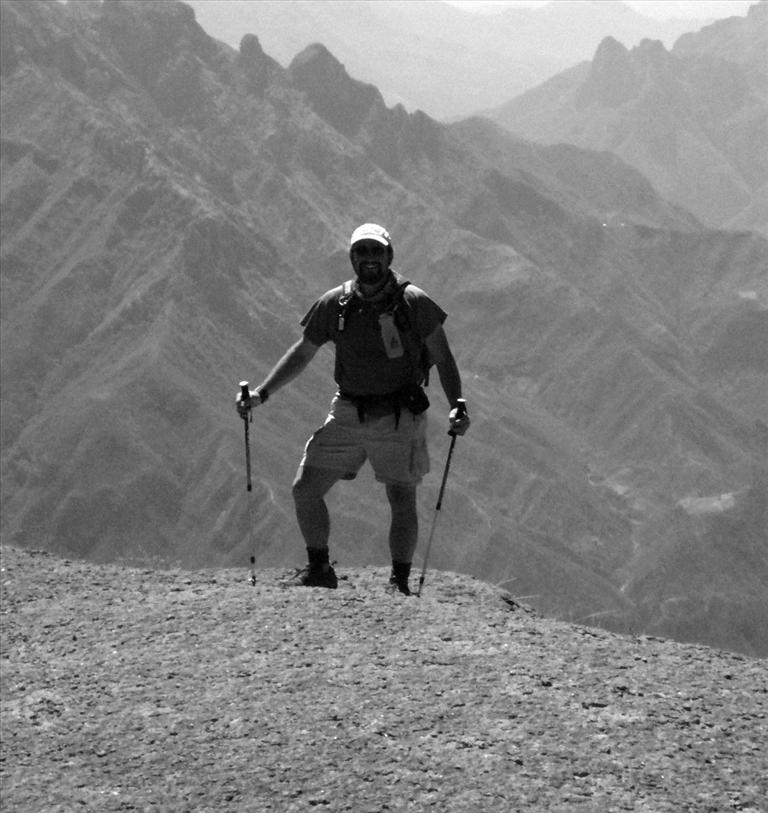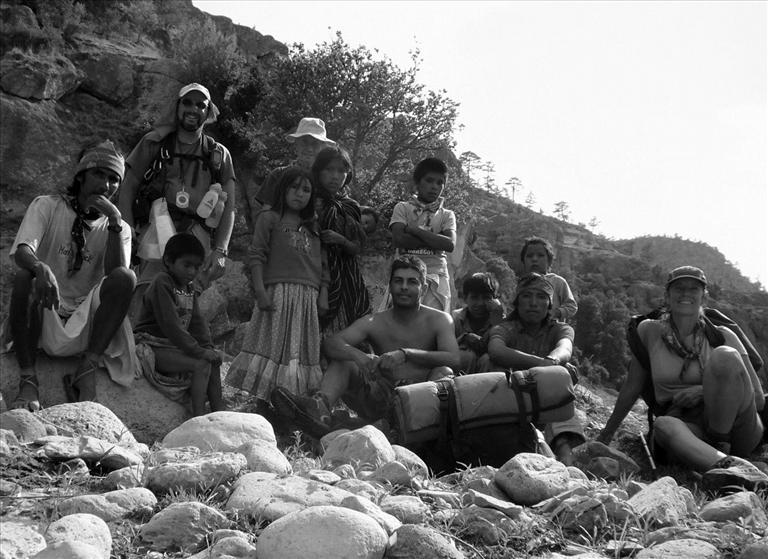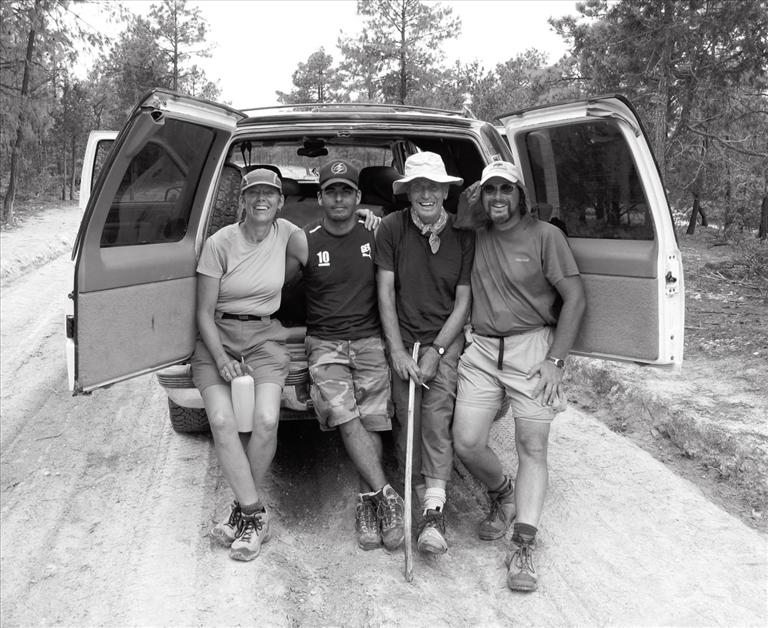Footloose Scot (18 page)
Authors: Jim Glendinning

At this point, I decided to leave the group for a while. I wanted to visit Ghana, the two small countries of Togo and Benin, and also Nigeria, the richest and most populous in the region. I would meet up with the group in Bangui, Central African Empire, eleven days later.
Ghana, now in its twentieth year since independence, proved to be easy to visit. I hitchhiked, met with some British teaching volunteers and stayed in their village. In Accra I stayed in a university residence and walked around the city centre. English was widely spoken and there was a level of economic development way ahead of the Sahel countries.
From Ghana I rode in a shared taxi to Togo. This country, formerly a French possession, is less than 40 miles wide at its southern limit, the coastline, and stretches 335 miles north. In this space of 22,000 square miles live around six million Togolese. In a snack bar in the capital, Lome, I got to speaking with some English expatriates, working on a power installation. They invited me to their villa for a couple of days eating and drinking. The free accommodation and food was welcome, but their lack of interest in the country and its culture was depressing. I felt that I had not come to Africa only to talk about English soccer and eat fried eggs and chips. I thanked them and caught another shared taxi to the next country.
At a cheap hotel in Cotonou, the capital of Dahomey, the cheerful young receptionist said to me: "Are you coming to celebrate our National Day?" I asked her what was going on. She told me it was Independence Day and the President was coming to make a speech, on the beach just outside of the capital, and there would be music and dancing. It would last all day, and be very festive.
This sounded like something to see, so I started walking, following group of local families carrying picnic things towards the beach. After twenty minutes, the crowds were getting thicker, when suddenly a police car drove past me, and pulled to a halt. Two police officers got out, and approached me. "What are you doing?" they asked in French. I was going to the fete, to help celebrate National Day, I told them. "No, you're not," they said "Come with us." And they opened the back door of the car and pointed for me to get in.
The car turned round, and headed back to the city center. I asked the officers what was going on, why they were preventing me from attending the festival. All they said was that I would soon find out. We stopped at a police station, and went inside. A senior officer was there, and he told me to sit down. "We are holding you here for the day in preventative custody. You will stay in this office, not in a cell, but you will remain until I come back in the evening."
I was at first disturbed, then angry, then found time to see some humor in the situation. Wanting only to be a good tourist and celebrate a public holiday with these easy-going and friendly black folks I, a solitary white man wearing travel worn clothing, was being held as a security risk, or so I assumed. They never exactly spelled it out. The senior officer left in the police car, maybe checking for some more undesirables. The police man on duty pointed to a chair, and there I sat for eight hours, with occasional trips to the toilet. "Now you can go" said the senior policeman when he returned in the evening.
Nigeria was a huge contrast after the laid-back atmosphere of Togo and Dahomey. It was big and bustling, and the people were more aggressive. Even before I entered the country, the immigration officer was determined to make a point to me coming from England. My passport and visa were in order, but I was made to wait as other visitors were admitted ahead of me. When the officer beckoned me from my seat where I had waited for two hours, I asked him what was the matter. He officiously said that he always checked British passports very carefully, since "our boys are not treated well at Heathrow".
The crowds and the noise in Lagos drained me of much desire to visit the city sights. Hustling shopkeepers, demanding beggars and loud traffic noise were too much. I had spent the worst night of the trip sleeping in a student hostel with the window open to a sewage drain. Mosquitoes swarmed all around, and retreating under the bed covers only increased the heat. It was time to get out. I bought a plane ticket to Douala, Cameroon Republic and took a bus out to the airport. Nigerian Immigration again examined my passport at great length, asking why I was leaving. It took all my self control to restrain myself and give an innocuous reply.
Waiting in line to change money at Doula, I started talking with an older white man. A Belgian national, he was almost at the point of retirement having spent a lifetime teaching in African universities. He had just returned from a trip to Belgium to make last-minute arrangements before he and his wife would finally retire. Tall and dignified, his subject was English literature, so he spoke English easily. After only a few minutes chatting in the exchange line, he invited me to come and spend a couple of days in the apartment he and his wife occupied downtown. There was plenty of space since their three children were all in Europe. I reminded him, he said, of his elder son. From the hellhole of Lagos to air-conditioned comfort with educated, pleasant people, my fortunes had changed for the better.
As arranged, I rejoined the group at the campsite in Bangui, capital of the Central African Empire. Of the many French former colonies in Africa, this one was one of the strangest. The head of state was Emperor Bokassa, who had been crowned emperor two years previously in a ceremony costing a quarter of a million U.S. dollars. This madman was kept in power by the presence of the French Foreign Legion stationed in Bangui but was overthrown two years later. At his subsequent trial evidence was introduced that he consumed human flesh. The situation in the capital when we arrived was stable but uneasy. We had a day to explore Bangui before crossing the river into Zaire. Our leader Jo said "In view of the tense situation, do not take any pictures of the military, police, or of any public buildings".
I was wandering around the downtown part of the capital, which contained some stores, a market, shacks and a few high rise government buildings. Being a smart ass, I thought I would take a quick picture of the tree-lined avenue, which bordered the presidential palace (I could just see the roof in the background). It looked quite handsome and there were some local woman in the foreground. I stepped off the sidewalk, quickly took a picture, stepped back and resumed my stroll.
A few minutes later, I was stopped by two young Africans, in smart casual clothes. They had that confidence and swagger which spoke of someone in authority, with clout. They weren't just civilians, they were plain clothes police. They confronted me: "Monsieur (we were talking in French now), you were taking pictures of our president's home." Hoping to flatter them, I said, "I was taking pictures of your wonderful capital and the most majestic presidential palace." They were not flattered, and said, "You will come with us." I knew I was in trouble.
The plain clothes guys left me at the main police station to be interviewed by the Chief of Police who was out to lunch. Time passed and I thought the truck would leave without me. Suddenly the Chief of Police arrived, a portly man in a smart uniform with a fancy military hat. He looked at me without much interest as his underlings explained why I had been brought in. I jumped in and seized the initiative. My French was working overtime and in this crisis I was fluent. I was taking pictures, I told him, just as souvenirs. "If this infringes any law I will give them to you," I said. "In fact," I added, "I will give you the whole camera." I was apologetic and effusive, the picture of a sweaty, nervous white tourist. Bored with this sight, he said "Go way" dismissing me with a wave of the hand. I had the feeling that he thought that dealing with miscreants like me was below his station. Nothing more.
So I scuttled out of the police station and rejoined the truck. There were some sardonic remarks as I climbed on board just before it left for our evening camp site. I could have done without the experience, but it taught me to listen to people who know more than I do. It might have made a good book "Seven years in a jail in central Africa" but for the time being I was totally relieved and chastened.
The next day we crossed the Ubangi River into Zaire (now the Democratic Republic of Congo), the center of tropical Africa. From the shifting desert sands and cold nights of the Sahara, we now travelled in humid temperatures along potholed muddy roads with the jungle foliage scraping the side of the truck. We averaged perhaps ten miles an hour. The wet heat was constant, the bug population always on the attack and the jungle noises never ceased. When we reached a river, the choice was either a narrow log bridge or a rickety old ferry which the truck drove cautiously onto, and everyone hoped the ferry wouldn't sink.
Camping was a problem, because there was nowhere to go without attracting a crowd of locals. Typically, as evening approached, we would try to get permission from a village headman to camp near his village. We would also try to buy some local produce. Then we drove off to the nearest clearing in the rain forest to set up camp. But we would never be alone.
Even in the most remote areas, boys and young men would appear out of the jungle to watch us. Not threateningly, not carrying spears, just plain curious. It was not often a huge yellow truck filled with pink sweaty Westerners dropped by. The problem began after it got dark, when everything which was not tied down was for the taking.
We established a guard roster. The night when it was my turn as guard, I lay down on an air mattress underneath the back of the truck close to where the fuel cans and cooking equipment were chained up. Sometime during the night I heard a rustling noise and woke up. It was pitch black, but could see four sets of white eyes moving around at the back of the truck, and from the clanking of chains I gathered that the intruders were trying to drag off some of our jerrycans. I got up, started yelling and throwing stones into the darkness. The intruders vanished.
After almost four months on the road, the group had now broken down into smaller units. The older married couples kept to themselves and some of the younger singles had paired off and moved into the same tent. The young girl from the farm in Cornwall had quit and flown home. The doctor got very sick, and lost all his energy. One of the brothers from Birmingham got drunk at every opportunity. Perhaps the cheapest overland trip attracted less interesting or interested persons. Still, we all had a common interest in getting to the destination so a reasonable decorum was maintained. There were no fist fights. We were all somewhat run down, both by the wear and tear of long distance travel as well as from an inadequate diet and the discomfort of constant tent camping with only occasional (and primitive) washing facilities.
We bumped along muddy, potholed roads and finally reached Kisangani. The third largest town in Zaire, with over 100,000 residents, it is also the last navigable stop on the Congo River and an important regional commercial center. Kisangani was the setting for V.S. Naipaul's
A Bend in the River
which was published two years later. It was described in the book as reverting to an age-old African primitivism. It had suffered severely in the fighting and unrest following independence in 1960. The elegant old buildings, built by the Belgians when the city was known as Stanleyville, which were still in use were pitted, stained and dilapidated. The unoccupied buildings were burnt out shells, or boarded up. The marketplace, however, even in its decayed state, had life and vigor. In addition to the usual pineapples, bananas, paw-paw and avocados, pickled snakes, dried bats and dead monkeys were for sale.
It was here that I decided to leave the group, which would continue towards Rwanda and East Africa. I had already told Jo and Nick I would quit early, so this was not a surprise. It was because the truck was running late. I found a flight to the capital Kinshasha, where I changed planes for Nairobi. At Kinshasha Airport an official tried to charge me a departure tax, although I was only in transit. After I had cleared customs and immigration he was still at my side plucking at my arm until I got to the steps of the plane. I felt I was leaving the Africa of Conrad's
Heart of Darkness
and was glad to be heading for the comforts and sophistication of Nairobi.
GROUP ADVENTURES
_______
2008
HIKING IN COPPER CANYON, MEXICO
THE SILVER ROUTE
The town of Batopilas (elevation 1,515 ft, population 1,200) lies at the bottom of Batopilas Canyon, one of the six canyons in the Sierra Tarahumara Mountains, part of the Sierra Madre Occidental in Chihuahua State, Mexico. The Sierra Tarahumara, home of the Tarahumara Indians, has long been a destination for adventure travelers, whether hikers, motor bikers, mountain bikers, those willing to drive their own vehicle on the 30-mile section of winding, dirt road which drops 5,000 feet, or bus passengers taking the six hour ride from Creel, the gateway to the region.
When Spanish advance guards first entered the canyon in 1632, they discovered silver nuggets glistening in the river. The snow-white quality of the silver prompted them to name it
Nevada
(Snow). Serious mining of the area began a hundred years later with the opening of Nuestra Senora de Pilar mine. From 1730 to 1820, various mines in the area produced prodigious quantities of silver up to the time of the War of Independence.
The glory days of Batopilas began in 1880 when an American, Boss Shepherd, arrived and consolidated over 350 mining claims into the Batopilas Mining Co. Using modern techniques, the company enjoyed 30 years of profitable mining which included opening a smelter, establishing a hospital, and generating their own electricity besides starting a phone system. Transportation of the silver bars to a bank in Chihuahua City, 120 miles distant was done by mule trains. Up to 100 mules at a time, each with two bars strapped to their backs, struggled across the sierra with a heavily armed escort.
So great was the volume of mule traffic that even today scars and grooves in the rock reveal the route. For the past few years, American hikers and mountain bikers have opened up the Silver Route
(la Ruta de la Plata)
for recreational use. Some directional arrows have been put up, and a limited edition guide book has been published. To cross the mountains and end up in Batopilas looked like a challenge. I would do it in two stages, starting on the east side of the range. Thus I found myself in fall 2008 with three other people on a wooded plateau around 7,000 feet near the town of Carichi, Chihuahua looking for an arrow on a tree pointing the way forward.
We found one and forward we went. And three hours later were off route. Not that this mattered, we really didn't want to follow arrows, few as they were. Our group comprised Tony from Mason, Texas, equipped with many hiking gadgets, Pilar from Alpine who would later ride the route on horseback from end to end three times, and Aron, a young Mexican bull-rider who lived nearby and whom we had met previously. We felt we could cope without arrows.

We were a tolerant group, separated by age (40-70 years), nationality and gender. Love of the outdoors, physical exertion and Mexico was the binding force. It was tiring work, and our conversation was spasmodic until the evening when we cooked and talked. Aron told us one evening about the number of his high school classmates who had been killed in narco wars, although this topic was not one which worried us during the hike. I recited part of Shelley's Ozymandias to a surprised Pilar one morning when the terrain ahead reminded me of another world. Tony was the most energetic relishing the demands of the hike and fussing with his new Global Positioning System gizmo. As we waited an extra twenty minutes while he packed his gear I suggested to him he might be over equipped. But, when the sole of one of my hiking boots came off, Tony of course had duct tape.
For two warm and sunny days we hiked across the Sierra Madre, gradually ascending. Our route took us across high plateaus, through pine woods and down to a watered valley fed by the Rio Conchos. We crossed two canyons. We skirted Tarahumara settlements and sometimes stopped to ask about the route. We dry -camped twice, which involved rationing of water since the water we had was what we carried. Generally, obtaining water along the route was not a problem. On the third night, with a rain storm brewing, we took shelter in a cave and lit a fire.
Carrying our own gear and food, we camped out and cooked on open fires. We watched a Tarahumara family butcher a pig, discovered a spring just when we really needed water, and enjoyed an unexpected swim. With Aron's help we were able to have occasional discourse with Tarahumaras including a venerable ancient called Nacho Keno. Gringos, particularly Pilar, our gringa who speaks good Spanish, would never for cultural reasons have been able to have such dialogues with a Tarahumara. We exulted in the novel terrain and coped with the discomfort. On the fourth day a Suburban we had rented in advance by phone to meet us was ready and waiting at an agreed spot exactly as requested. Our total mileage was 38 miles in four days. This was the end of the first part of The Silver Route.
In Spring 2009 I hiked the second part of the Silver Route, from the high point near Creel to Batopilas in the canyon bottom. My companions this time were Roger from Alpine, Texas and Elizabeth from Colorado. We had two burros to carry our bags, and two Mexican men to guide us and tend the burros. The route was from near Creel, where my previous hike had ended, to Batopilas, the end of the trail.

TONY PLUTINO

TARAHUMARAS AND GRINGOS

END OF HIKE
The topography was different from the first part. We were going mainly downhill across steep, wooded terrain. The guides had only a general idea of the route. We got off -route on the second day, which lasted a long12 hours, and just as the light was fading we found the trail again and made camp. Our guides chatted with some Tarahumaras whom we met, and avoided others when they seemed to be doing marijuana business.
The weather was fine, and the views to the horizon stupendous, row upon row of forested mountain ridges, not a road in sight nor a house. We almost became stuck when, on a detour to get some food (the guides had not brought provisions), we had to cross a range with an extremely steep ascent. The burros were unloaded and, poked, pushed and dragged, only just made it.
Dropping down steeply on the third day, we joined the Batopilas River. Now we were all out of food. Noticing a small house on the opposite bank the guides waded the river and asked the owners if they could fix us a meal. Burritos, coffee and papaya never tasted better. Some hours later we trudged down Batopilas's main street, four days after starting out, and found rooms at Hotel Mary. A shower, a six dollar meal of chicken
mole
(browned chicken pieces in a spicy tomato and chocolate sauce) and we were restored. The next day we got up before dawn and caught the early morning bus back to Creel.